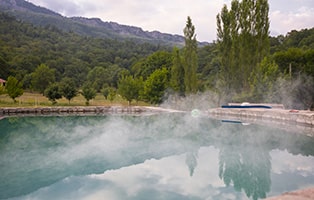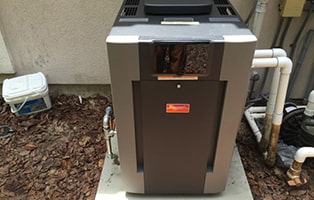If you want to know How to Heat a Pool, dive into our informative article!
You dive in, expecting to feel the luxurious warmth of the water. Instead, you experience a chilliness that shocks you to your core. This was a nasty surprise—one that wouldn’t have happened if only you had invested in a pool heater.
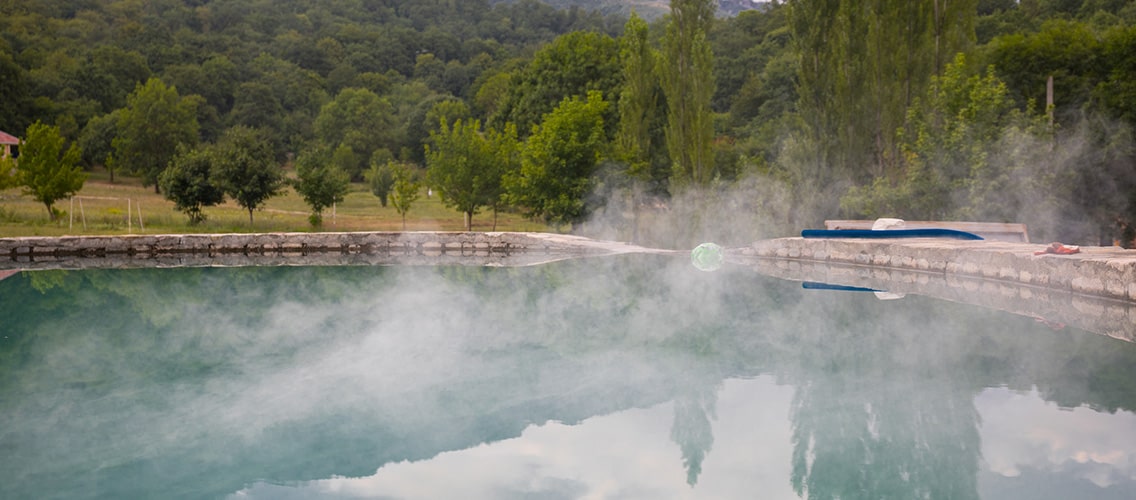
Some people think that a pool is an unnecessary expense. However, if you want to ensure that your backyard swimming hole is an inviting oasis instead of something to be avoided at all costs, consider buying one.
A pool heater helps you maximize your investment by allowing you to get more swim time in. Even if you live where it’s balmy, you’ll need a pool heater if you want to use your pool during the colder months. And if you live in a cold climate, a pool heater can extend the swim season by one or two months in the spring and the fall.
How Much Do Pool Heaters Cost?
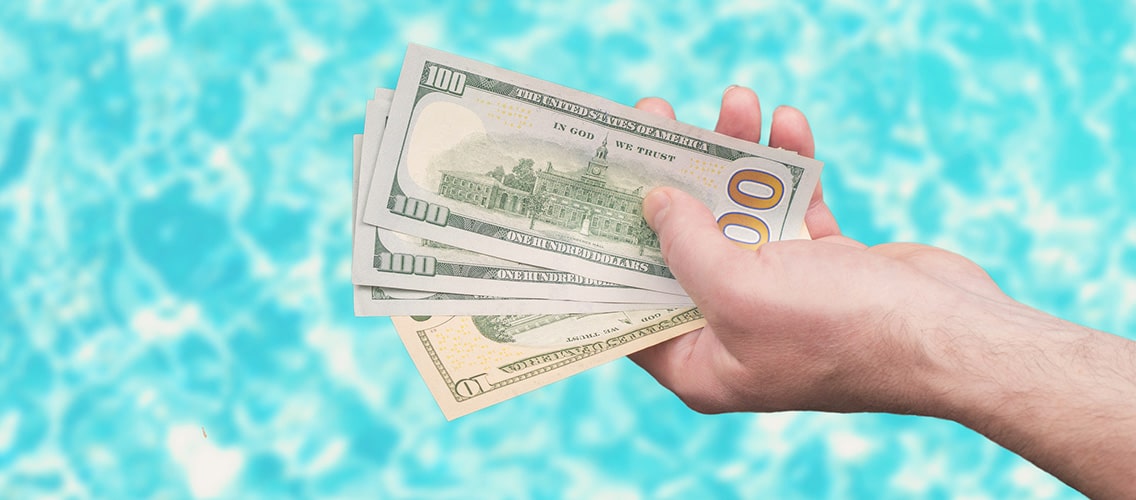
Pool heaters for inground pools typically cost between $1,750 and $8,500. If you’re looking to buy an above-ground pool heater, it’ll cost you $1,300 to $2,400, including installation.
Here are the different types of pool heaters you can buy:
Solar-Powered Heaters
Let’s say you’re not only environmentally conscious but want a pool heater that’ll last. In that case, a solar heater for your pool might be your best bet. It uses the sun’s free energy to pump water through solar collectors, where it’s heated to a comfortable temperature before being returned to your pool.
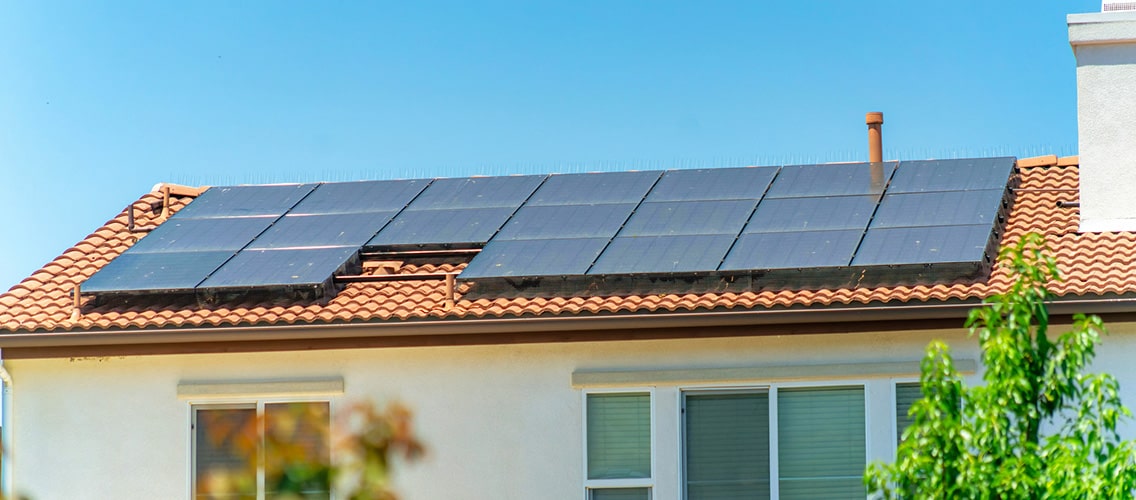
What’s fantastic about solar heaters is they can last up to 20 years—longer than every other heater type. What’s not so good is that they take longer to heat water to a comfortable temperature than other kinds.
Heat Pump-Style Pool Heaters
Heat-pump-style pool heaters are another environmentally friendly way to get your pool water nice and toasty. They’re known for their outstanding energy efficiency—saving you a bundle in ongoing costs.
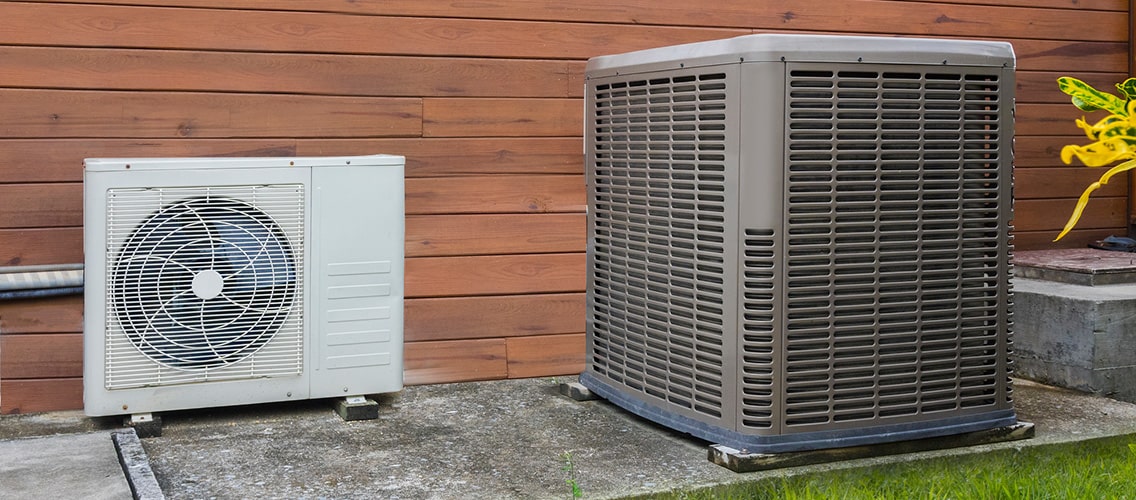
They can do this because they extract residual heat from the air using tiny amounts of electricity instead of generating heat. If you live in a warmer climate and use your pool daily, a heat pump-style heater might be right for you.
Electric Resistance Heaters
While electric water heaters for pools run on electricity like heat pump-style heaters, they heat up water differently. Instead of extracting residual warmth from the air, electric resistance models use copper coils to heat water.
Buying an electric resistance pool heater costs considerably less than a solar-powered model. However, operational expenses will be more if you live in a cold climate or need your pool water heated quickly.
Gas-Powered Heaters
Like electric resistance heaters, gas-powered models use copper coils to heat water. However, gas pool heaters use either natural gas or propane as fuel.
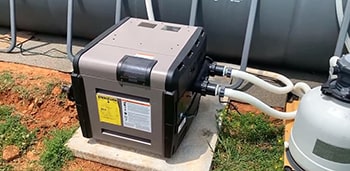
Gas-powered heaters are fantastic at heating up water quickly. This makes them an excellent choice for homeowners who don’t use their pools that much. On the other hand, gas-powered heaters are the least energy-efficient of all pool heater types.
If you don’t have a natural gas line but would love to have this type of heater, putting one in will cost you between $12 and $25 per foot, including installation, materials, and permits. The total cost depends on how far away the gas main is from the unit.
How BTU (British Thermal Units) Ratings Affect Operational Costs
Every pool heater comes with a BTU (British Thermal Unit) rating. A BTU is the heat required to raise the temperature of one pound of water by one degree Fahrenheit.

For every 5,000 to 10,000 gallons of water, a pool heater needs to produce 50,000 BTUs of heat. The higher the BTU rating, the faster water will warm up. The more BTUs, the higher the ongoing costs. Plan on paying between $.0.01 and $0.04 per BTU.
How to Cut Down on Ongoing Expenses
By implementing any or all of the following strategies, your pool heater won’t have to work as hard. This can save you hundreds of dollars a year in energy costs:
- Use a solar pool cover or solar rings to boost your heater’s effectiveness
- Keep your unit maintained to ensure optimum efficiency
- Turn the temperature down when not in use
- Remove trees and shade-creating plants or structures near your pool
- Put up wind blockers to retain heat in windy areas
- Get a heating mat if you own a smaller pool
Final Thoughts

Some people think they can get by just fine without a pool heater. However, these individuals won’t be able to enjoy using their pools as frequently as others who make the smart choice to invest in one.
By making that same decision, you’ll lengthen swim season by a few months in the spring or fall. Moreover, you won’t have to suffer the nasty shock of water that’s appallingly cold—all because you mistakenly thought the water must be warm since the sun’s shining.
In this day and age, a pool heater is a necessity—not a luxury. If you’re looking for the best swimming pool heaters, check out our guide.

Pool Maintenance Tips & Tricks
